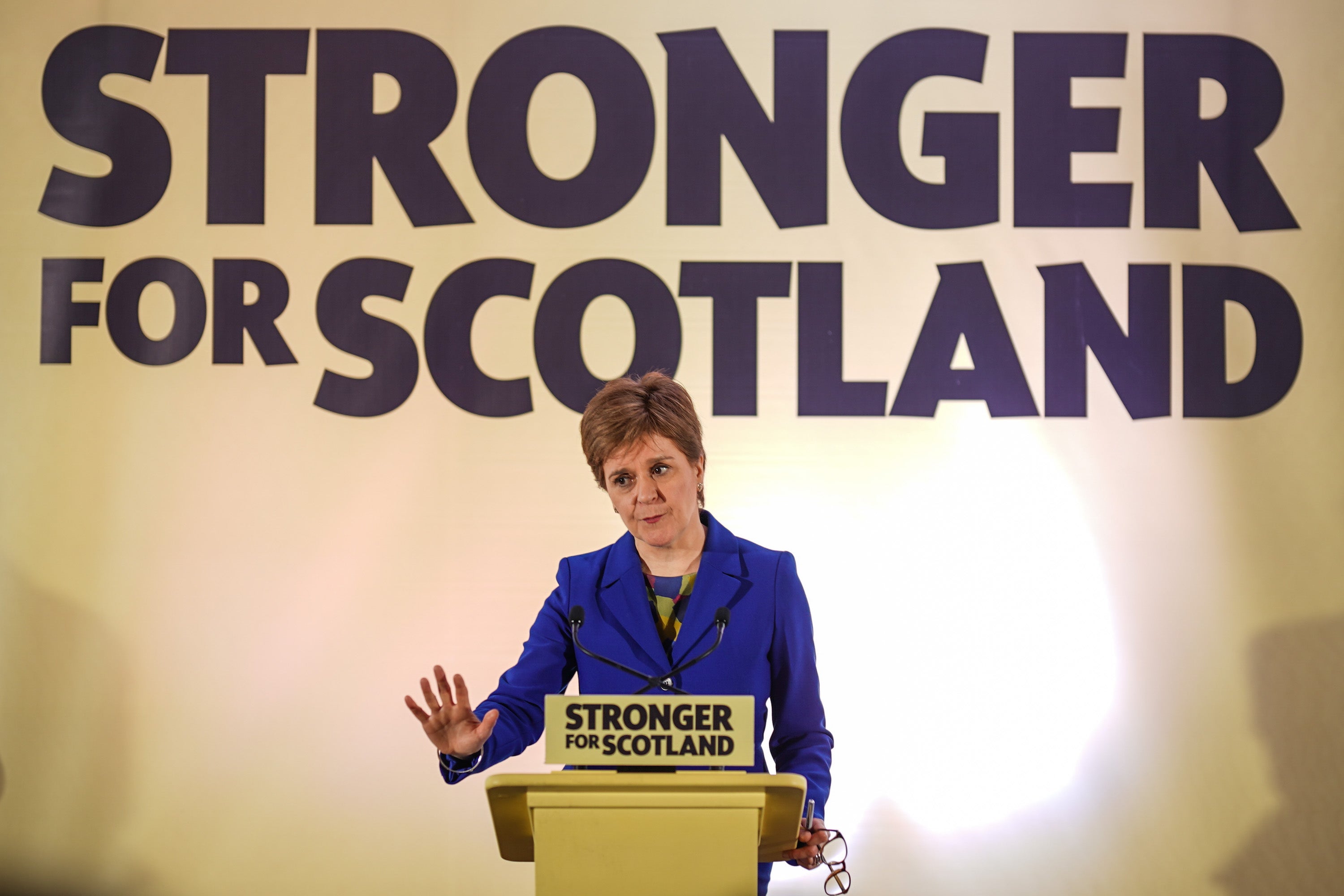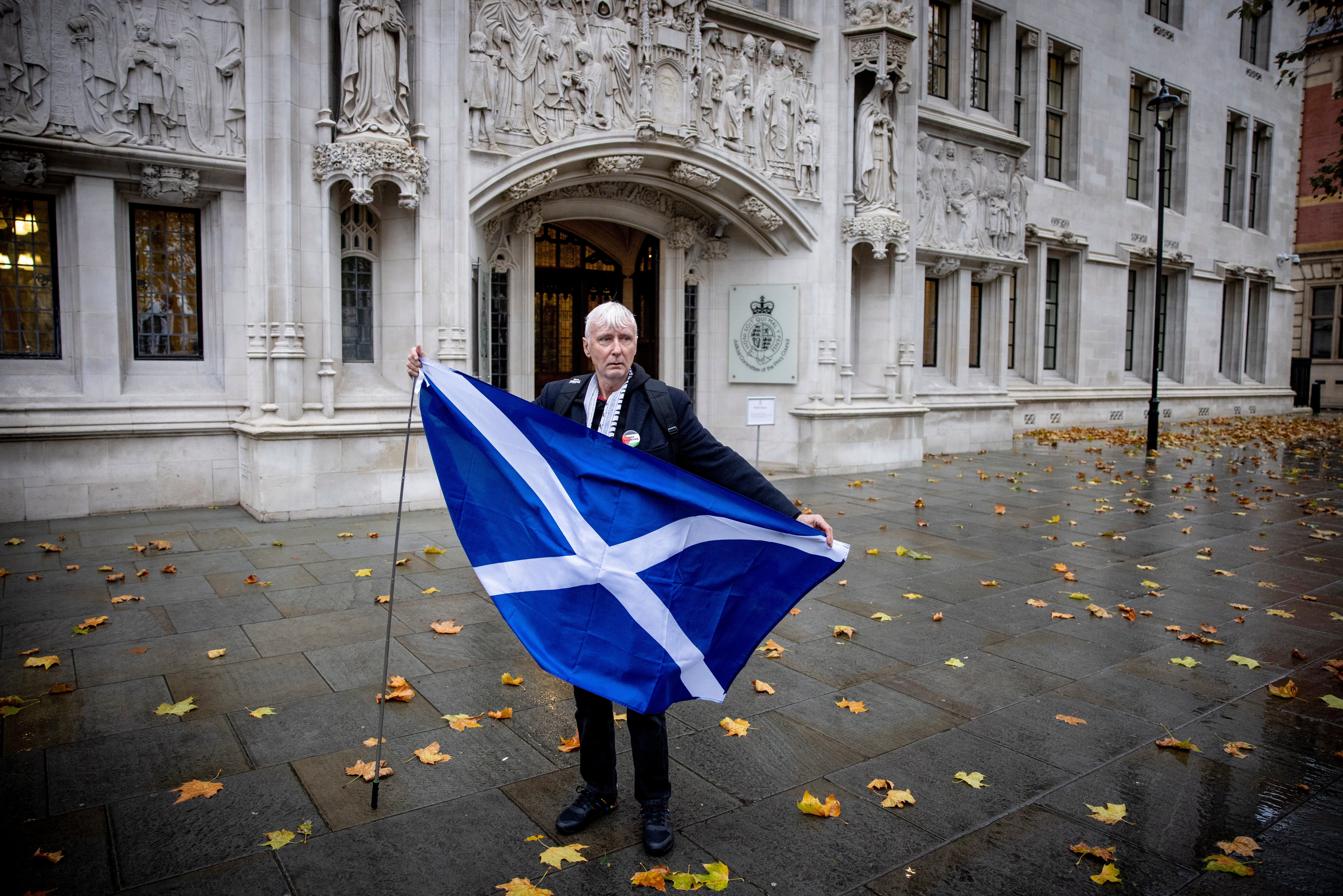Key questions as Sturgeon’s IndyRef2 plan rejected by Supreme Court
First minister vows to fight on after Holyrood told vote needs Westminster’s approval
Your support helps us to tell the story
From reproductive rights to climate change to Big Tech, The Independent is on the ground when the story is developing. Whether it's investigating the financials of Elon Musk's pro-Trump PAC or producing our latest documentary, 'The A Word', which shines a light on the American women fighting for reproductive rights, we know how important it is to parse out the facts from the messaging.
At such a critical moment in US history, we need reporters on the ground. Your donation allows us to keep sending journalists to speak to both sides of the story.
The Independent is trusted by Americans across the entire political spectrum. And unlike many other quality news outlets, we choose not to lock Americans out of our reporting and analysis with paywalls. We believe quality journalism should be available to everyone, paid for by those who can afford it.
Your support makes all the difference.The Supreme Court has ruled the Scottish parliament cannot hold a referendum on independence without Westminster’s approval.
All five of the court’s justices said Holyrood’s proposed legislation for an independence vote went beyond its powers due to the implications for all of the United Kingdom, scuppering first minister Nicola Sturgeon’s plans to hold a vote on 19 October 2023.
Ms Sturgeon said she would respect the union but accused the Westminster government of “denying democracy” and reiterated her party’s plan to make the next national election in Scotland a “de facto referendum”, by which she would consider a majority of Scottish votes to be a mandate for independence.
The Westminster government has repeatedly refused to meet the first minister’s demand for another referendum, arguing that the matter was settled for a generation by the 2014 referendum in which Scots voted to stay in the union by 55 to 45 per cent.
Ms Sturgeon’s Scottish National Party points to shifting opinion polls which, though they rarely show majority support for independence, have narrowed significantly in the past eight years.
The Supreme Court, which considers the UK’s biggest constitutional questions, was asked by the Scottish government’s top law officer to consider whether proposed legislation for an independence vote was within the power of Holyrood – or as judges might say: “within its legislative competence” – or whether such decisions are reserved to Westminster.
Despite the argument of Scotland’s Lord Advocate that the bill being considered did not cover reserved matters as a referendum would not trigger independence, justices said any vote would still have huge “practical” and legal effects.
In no uncertain terms, the Supreme Court president Lord Reed said: “The Scottish parliament does not have the power to legislate for a referendum on Scottish independence.”
So, what next?
Immediate reaction
Ms Sturgeon said the ruling “exposes as myth” the UK’s status as a voluntary union and vowed to use the next general election as an indicative vote on independence.
But opposition parties have urged the first minister to drop her “obsession” with separation and focus on the issues facing Scotland.

Rishi Sunak, speaking at Prime Minister’s Questions hours after the judgement was handed down, said: “The people of Scotland want us to be working on fixing the major challenges that we collectively face, whether that’s the economy, supporting the NHS or indeed supporting Ukraine.
“Now is the time for politicians to work together, and that’s what this government will do.”
What will Sturgeon do next?
Two possibilities are now in play as a result of the judgement, one straightforward and unlikely and the other more unclear but also more likely.
The Scottish government could continue its push for a Section 30 order, which would see the UK government allowing Holyrood the necessary powers to hold a referendum.
While Ms Sturgeon told journalists in an hour-long press conference on Wednesday she remained open to discussions with Mr Sunak about such a move, she would not go “cap in hand” to seek one.
A succession of UK prime ministers have signalled their opposition to such a move in recent years, with Theresa May and Boris Johnson having rejected such approaches.

The more likely option is that which Ms Sturgon laid out in a press conference today. She said a special SNP conference will be held in the new year “to discuss and agree the detail of a proposed de facto referendum”, using the next UK election.
She said: “No party can dictate the basis on which people cast their votes. But a party can be, indeed should be, crystal clear about the purpose for which it is seeking popular support.
“In this case, for the SNP that will be to establish – just as in a referendum – majority support in Scotland for independence so that we can then achieve independence.”
Will a ‘de-facto referendum’ be binding?
The short answer is no. The UK government, however it looks after an election, will be under no legal requirement to begin negotiations for Scotland’s independence.
But the issue for the occupant of No 10 would more likely be political rather than legal.
A majority of Scots voting in favour of independence would increase the pressure on the UK government to act, whether that would be to give ground on another referendum or start the process of Scotland leaving the union.
Additional reporting by Press Association




Join our commenting forum
Join thought-provoking conversations, follow other Independent readers and see their replies
Comments